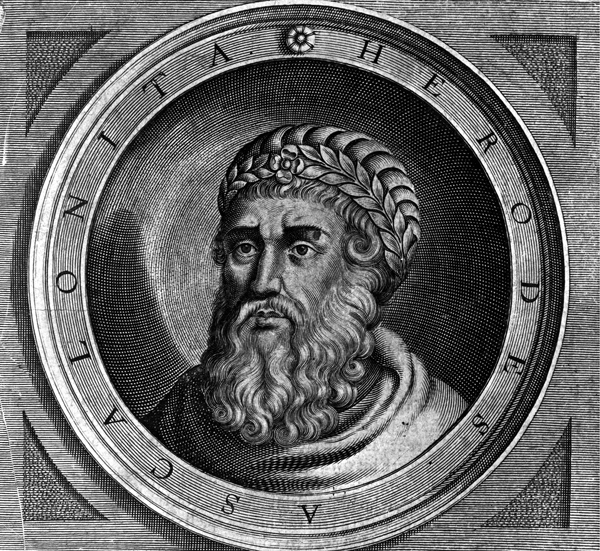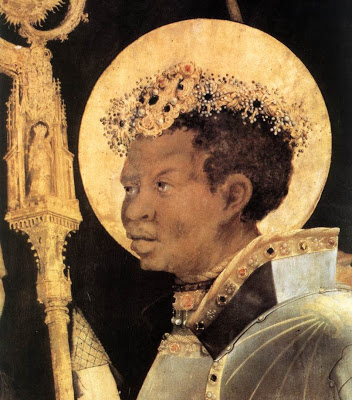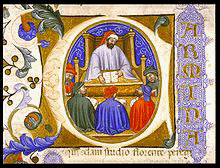Here are strings of new stories for new generation writers to consider and ponder. Our update this month following a 5,000 mile sojourn across the United States compels us to address the pursuit of empowerment for the least of us by functional believers like Hillary Clinton versus ...... values and reasoning not joined to the functional faith and teachings of Jesus. We perceive pursuits of power by lustful men like Donald Trump and many millions with reasoning not connected to Philosophy of Life by Jesus generated during the time-line of Herod the Roman appointed Tetrarch. The man was very much his father's son, a liar and hypocrite about John the Baptist whom he claimed to admire and expressions of seeing the miracles performed by Jesus. He executed John the Baptist to fulfill sexual lust for his wife's daughter, and then sent Jesus to be judged by the cruel Pontius Pilate, knowing the likely judgment of crucifixion. Herod Antipas was born and existed in the same years as Jesus but is not included in that first generation of goodness timeline 01-68 to-date. How could that be excepting by understanding generations in Christ are spiritual embellishments to matters of the flesh. Not all people born can be classified as a generation in advancement of goodness less they willingly choose to believe and do so. Herod Antipas had openly expressed interest in observing Jesus perform the cited miracles apparently widely cited in Judea, but when Jesus was brought to him for judgment he judged harshly by mocking and sending him back to Pilate, a known killer of Jews. Just at Antipas embraced and endeared himself to Pontius Pilate; Trump has endeared the support and closeness of many men and women like David Duke who are not functional Christians and wear smiles that mock him. Generation Tables In the Gospel of Luke, after the Sanhedrin trial of Jesus, the Jewish elders ask Pontius Pilate to judge and condemn Jesus in 23:2, accusing Jesus of making false claims of being a king. While questioning Jesus about the claim of being the King of the Jews, Pilate realizes that Jesus is a Galilean, and that Jesus is under Herod's jurisdiction. Given that Herod was in Jerusalem at that time, Pilate decides to send Jesus to Herod to be tried.[1][6] Herod Antipas (the same man who had previously ordered the death of John the Baptist) had wanted to see Jesus for a long time, because he had been hoping to observe one of the miracles of Jesus.[6] However, Jesus says nothing in response to Herod's questions, or the vehement accusations of the chief priests and the scribes. Herod and his soldiers mock Jesus, put a gorgeous robe on him, as the King of the Jews, and sent him back to Pilate. And Herod and Pilate become friends with each other that day: for before they were at enmity. (Luke 23:12, KJV)[1] The Gospel of Luke does not state that Herod did not condemn Jesus, and instead attributes that conclusion to Pilate who then calls together the Jewish elders, and says to them:[6] I having examined him before you, found no fault in this man touching those things whereof ye accuse him: no, nor yet Herod: for he sent him back unto us; and behold, nothing worthy of death hath been done by him.
After further conversations between Pilate and the Jewish elders, Jesus is sent to be crucified on Calvary.[ Herod Antipas matters because he inherited power following the death of his father King Herod who murdered the many male infants of Bethlehem in seeking to find and kill the newborn Christ child, so as to insure that his (Herod's) sons would inherit the kingdom (Judea) over which he ruled for Rome. Some scholars have noted that Herod the Great was a politician in the Roman Empire put in place by the brutality-brilliance of Augustus Caesar who made him King over the Roman Province of Judea; but, when informed about-after the ruthless murders carried out in Bethlehem, Augustus advised Herod, "I no longer consider you to be my friend." Herod Antipas ruled Galilee in Jesus' time. He inherited wealth and some power of his father, Herod the Great, and served as tetrarch (appointed by the emperor Augustus to rule over one quarter of his father's kingdom) from 4 B.C. until 39 A.D., almost exactly the lifetime of Jesus. Yet there is relatively little about Antipas in the Bible excepting that when Jesus was brought to him by Pharisee priests seeking an authoritative judgment, he refused to do so citing his lack of authority and thus referring the matter of "goodness versus evil" to Pontius Pilate later dishonorably deposed and exiled by Emperor Caligula due to his extreme cruelty in ruling Judea.  This much we also believe about about Jesus based on histories by various scholars: crucifying Christ was followed by uprisings of the Judeans to the extent that Ethiopians under Queen of the South came north to join them in their pursuit of liberty from the Roman Empire. This much we also believe about about Jesus based on histories by various scholars: crucifying Christ was followed by uprisings of the Judeans to the extent that Ethiopians under Queen of the South came north to join them in their pursuit of liberty from the Roman Empire.
And, that prompted Rome to send special forces of men like Titus whom Paul was deceived and unknowingly embraced as his beloved. In due time, Peter and Paul were invited and executed in Rome, the Jewish Rebellion was crushed by functional military power of Rome, the Jews dispersed from Judea and Titus proclaimed as Rome's new god-emperor around 70 A.D. Jerusalem and it's walls destroyed, and no stone was left unturned but beliefs and faith about Jesus as the "Living Christ" reemerged generation after generation among believers. By year 330 A.D., Roman Emperor Constantine with thousands of Nubian and other believers such as Catholic Saint Maurice of Nubia (image on left) in his Army legions: was forced to acknowledge and accept existence of Christian beliefs but not necessarily the functional faith and teachings of Jesus that only one God existed in violation of Roman Law. Constantine politically appointed and paid Christian priests on the payroll of the Roman state, perhaps equal pay to that of the traditional Roman priests. Scholars note that on his death bed, Emperor Constantine who had moved his capital from Europe to Asia in his new city of Constantinople (now Ankara, Turkey) allowed himself to be baptized as a Christian believer.  And, so it came to past the old Roman Empire that had beheaded John the Baptist and crucified his cousin Jesus grew even larger and greater with their god emperors tolerant of Christian believers obedient to Roman rule. Romans had their beloved Papa's who professed to love them during the next two-hundred years before collapse of Western Roman Empire ruled from the great City of Rome. The barbarians led by Goth chiefs and kings like Alaric reaped their revenge upon the western Roman population in Italy and their provinces in Europe. And, so it came to past the old Roman Empire that had beheaded John the Baptist and crucified his cousin Jesus grew even larger and greater with their god emperors tolerant of Christian believers obedient to Roman rule. Romans had their beloved Papa's who professed to love them during the next two-hundred years before collapse of Western Roman Empire ruled from the great City of Rome. The barbarians led by Goth chiefs and kings like Alaric reaped their revenge upon the western Roman population in Italy and their provinces in Europe.
One legacy of Rome's fall of particular interest to us was written by a Roman scholar statesman of the patrician class named Boethius (image above right), born about 480 C.E. who served the new Goth leaders in on-going pursuits of power to rule over others, until finding disfavor and imprisonment by them. Like many Gothic conquerors, some born again Roman Christians, he professed his faith but labored for power and privilege of his once powerful patrician heritage. He was not a business man like Donald Trump's heritage in making profits, but a teacher who also wrote a number of books about rules of game being played in the new Roman Empire. Boethius classified himself to be very smart, much smarter than ruthless Goths with power of life and death around and over him. https://en.wikipedia.org/wiki/Boethius https://en.wikipedia.org/wiki/Alaric_I Boethius is included in our listing of famed and known brethren in Christ because while imprisoned awaiting death he wrote his most famous work that covered many pages of scholarly reasoning without mentioning God or Christ except the last line on last page: "In the end, try to join reasoning to faith." We hesitate to suggest that Boethius had functional faith but do believe in his last days he likely was deeply engaged in prayer to Christ as his Roman Catholic redeemer. However, what other goodness did he pursue? What did he say or do to end the Roman slave trade and slavery, we know not but try to understand that human beings are very capable of ignoring evil that befalls others than themselves. Their sense of self centered reasoning, like the neo-cons is very historic until endings that shatter them. We would argue that too many formally educated minds create false illusions about faith. An excellent example is that of men such as David Duke who have imagined themselves unjustly denigrated and persecuted for their behaviors denigrating and persecuting others not their color or kind. African-American scholars understand them and their bigotry. 
Our observation is that the outpouring of hatred against Hispanic and other American immigrants, of any color other than White, is very much contrary to faith many Americans profess to have and hold dear. Some, like Donald Trump have reasoned themselves into reasoning by people like David Duke; not realizing that in due time the devil will have his due. It really is a spiritual blunder; and evangelical pretentions about loving Jesus, but also denigration and deportation is hype. We know them by what has been seen and heard in generations past and present. Carl_Schurz in his well written report to President Andrew Johnson in the post-Civil War days, weeks, and months: gives insight into the mindsets that spawned degenerate hatreds of men like David Duke less than a hundred years afterwards. The spirit of what matters to such men and women is not Jesus Christ whom many claim to believe; but their evangelized beliefs are that JESUS died on the cross as a White man and is yet to come again. Such people do not believe, or even consider that African-Americans achieved liberation from powerful slave owners, raiders, and traders by appeals from two generations of Black, Brown, Tan, White and Yellow colored believers seeking empowerment by a Living Christ in which many believed. Evangelicals and Pentecostals still expect a second-coming in which Jesus will come and make America Great Again for them and their kinds. Recrimination Proclamation During the Great American Economic Depression that erupted in year 1929 when President Herbert Hoover and Congress allowed greedy ruthless investors to risk the country's future in pursuit of profit, great wealth was created in the after-math following World War I that killed over 50 million people. A new generation of winners like Donald Trump's grand-father had wisely avoided getting conscripted into the holocaust coming his way, and like many European young men migrated to America to avoid military conscription but came with his skills. Even then, in the post-Civil War and pre-World War eras, few if any Americans hated young men immigrating to a better place to earn a better living to help birth and raise up a new and better generation. But, there were some who did, reasoning that aliens were coming to take their inherited goodness from them. Or, in some cases behind the cotton curtain there were patrols and regulators, including sheriffs, to keep "colored laborers" from leaving their designated places of servitude, called share cropping. And, yes the Klan types espoused reasoning that descendents of slaves and ex-slaves, even the ones that looked White, were not American citizens by custom but rather due to unconstitutional laws not issued by the founding fathers. African-American young men such as Charles R. Wilson, born abt 1875, Lewis Robinson Marshall Martin, born abt 1895 and William Thomas Frog Kyle Atkins, born 1906 dispersed from their places of birth and family roots in the American south to places like Kansas and the Pittsburgh Region wherein employment was available for young men able and willing to undergo the risks, stress and strains of learning and being coal miners. Their mandates from homes throughout much of America was "when you find work, write us." Mothers, wives, offspring and siblings were sure to follow away from deprived income, health, education and living condition alternatives. Coal mining was dangerous and hard work but a critical and profitable industry for producing energy for homes, factories, mills, ships and even the thousands of electrical grids crossing the country. Most men did not have the stamina or courage to be coal miners; but labor demands were so great that many mine owners aggressively recruited among African-Americans and first generation immigrants from Europe. And many mine owners hired Pinkerton type armed militia to prevent and stop Ku-Klux Klan instigations among and against mine-workers who happened to be Black or Catholic. Bottom-line down in the coal mines was that of a Living Christ to bring them up and out into the light everlasting; for those who chose to be functional believers. Women and children in the lives of coal miners washed away the dirt and grime of their depression by embracing the functional faith that brought them up from where they were when a lot of men viewed themselves as great. | 
























 And, so it came to past the old Roman Empire that had beheaded John the Baptist and crucified his cousin Jesus grew even larger and greater with their god emperors tolerant of Christian believers obedient to Roman rule. Romans had their beloved Papa's who professed to love them during the next two-hundred years before collapse of Western Roman Empire ruled from the great City of Rome. The barbarians led by Goth chiefs and kings like Alaric reaped their revenge upon the western Roman population in Italy and their provinces in Europe.
And, so it came to past the old Roman Empire that had beheaded John the Baptist and crucified his cousin Jesus grew even larger and greater with their god emperors tolerant of Christian believers obedient to Roman rule. Romans had their beloved Papa's who professed to love them during the next two-hundred years before collapse of Western Roman Empire ruled from the great City of Rome. The barbarians led by Goth chiefs and kings like Alaric reaped their revenge upon the western Roman population in Italy and their provinces in Europe. 